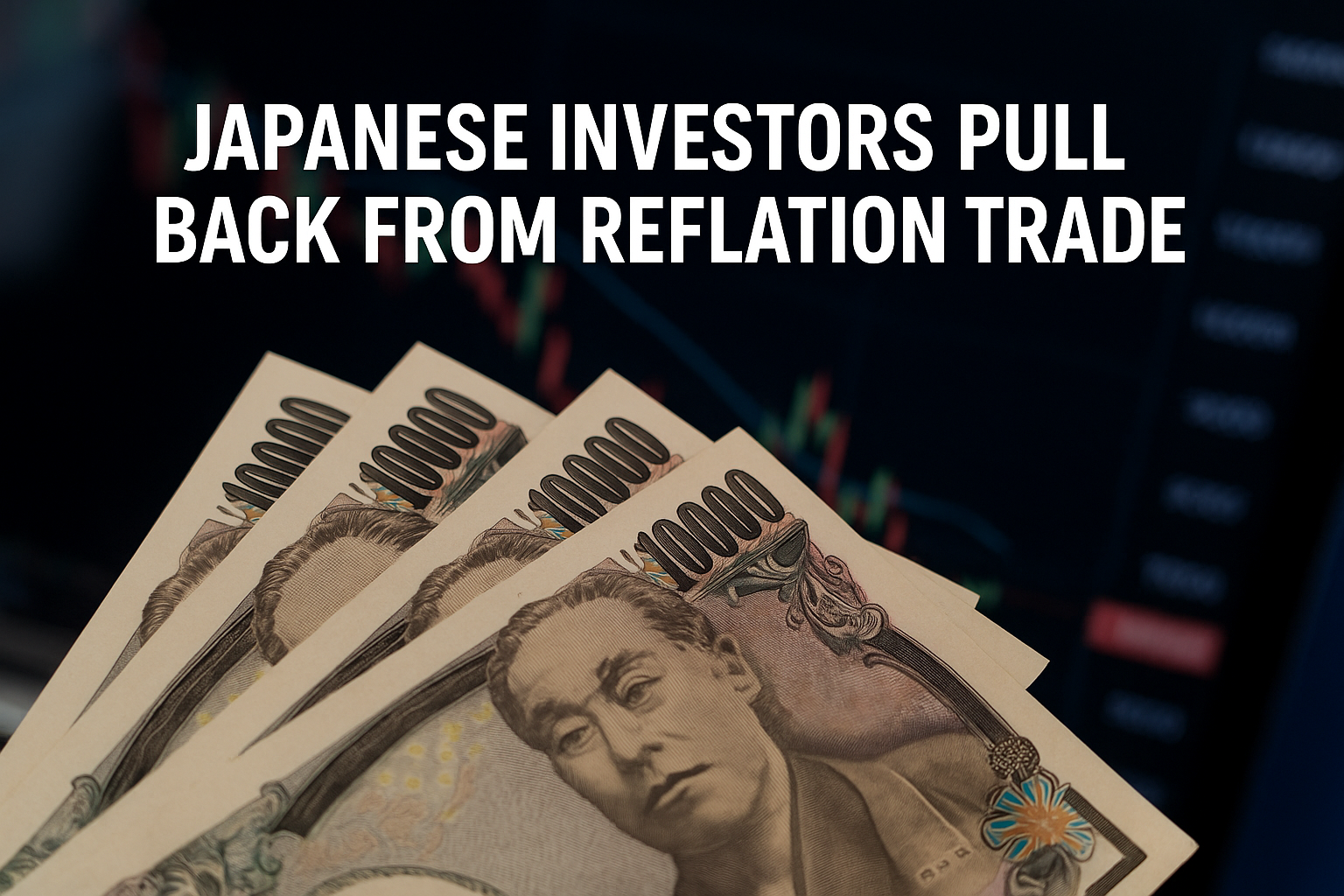Japanese Investors Retreat From Reflation Trade as Global Market Winds Shift
By Tredu.com • 9/2/2025
Tredu

Retreat From the Reflation Trade
Japanese investors, once among the biggest backers of the global reflation trade, are now pulling back as rising yields and fading growth optimism reshape capital flows. The pivot underscores a broader recalibration in markets where inflation, central bank credibility, and geopolitical uncertainty are rewriting investment strategies.
For years, Japan’s institutional investors have been central to the reflation narrative—buying into assets that benefited from post-pandemic recovery momentum. But now, with U.S. Treasury yields climbing and inflation dynamics looking less predictable, many are unwinding those bets.
What Sparked the Shift
The trigger is twofold:
- Global Bond Yields Rising – The sharp climb in long-dated U.S. and U.K. yields has eroded the appeal of leveraged reflation positions.
- Fading Growth Optimism – Recent data in Asia and Europe suggest slower growth ahead, undercutting the narrative that reflationary momentum would remain durable.
“Japanese investors were the lifeblood of the reflation trade, but conditions have changed. The economics don’t justify the risk anymore,” noted one Tokyo-based strategist.
Capital Flow Reversals
This shift has real implications for global markets:
- U.S. Treasuries and Gilts – Reduced Japanese demand could exacerbate volatility in already fragile bond markets.
- Emerging Markets – Reflation trades had funneled capital into emerging Asia; retreating flows may weaken currencies and bond markets in the region.
- Equities – Japanese pension funds and insurers are trimming exposure to cyclical and growth-sensitive equities, signaling caution.
Implications for Asia’s Market Sentiment
In Asia, the pullback is reverberating across exchanges. Tokyo equities softened, Seoul’s KOSPI turned defensive, and currency markets saw the yen stabilize as capital stayed home. Investors are increasingly turning inward, favoring yen-denominated bonds over riskier offshore bets.
This reflects a broader pivot: Japan’s institutional capital may now act as a stabilizer domestically, rather than a liquidity source globally.
Reflation Narrative Under Pressure
The retreat highlights a broader problem for the global reflation trade. Investors had assumed that inflation would remain sticky enough to support growth, yet not so persistent as to trigger runaway rate hikes. That delicate balance has proven unstable.
With the Federal Reserve still weighing its rate-cut path, the European Central Bank hesitant, and the Bank of Japan tightening cautiously, markets now face a less certain policy backdrop.
Looking Ahead
The consequences of Japanese investors stepping back from the reflation trade could be long-lasting:
- Bond Market Volatility – Less Japanese demand could mean sharper swings in Treasuries and gilts.
- Stronger Yen – Retained capital at home may give the yen fresh support, complicating export dynamics.
- Emerging Market Fragility – Without Japanese liquidity, risk premiums could climb in Asia and beyond.
The Bottom Line
Japanese investors retreating from the reflation trade marks a turning point for global markets. Once reliable sources of capital for cyclical risk, they are now signaling caution, forcing investors worldwide to rethink assumptions about growth, liquidity, and the durability of reflation bets.

How to Trade Like a Pro
Unlock the secrets of professional trading with our comprehensive guide.


